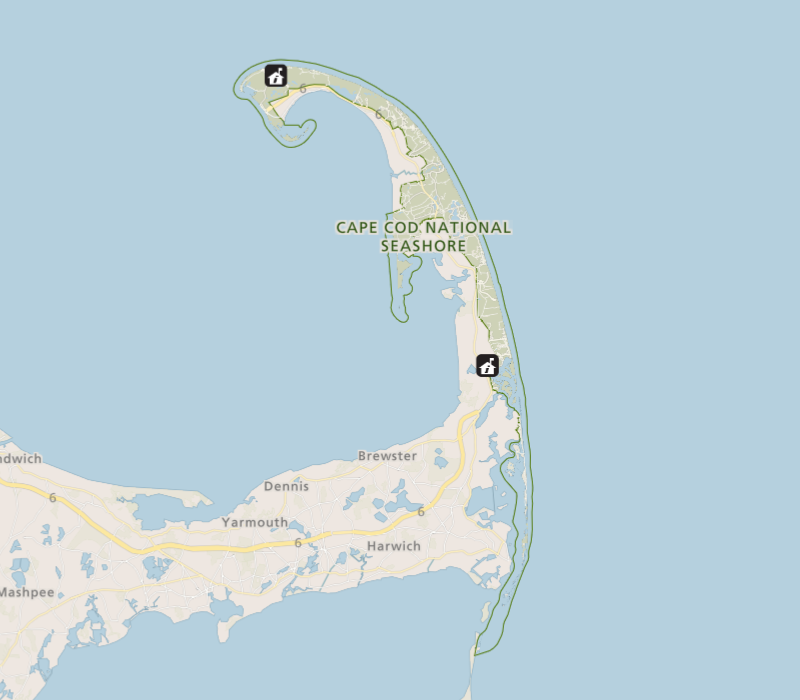
USGS Investigators: Meagan Eagle
NPS Investigators: Tim Smith , Sophia Fox
| 2024 | 2025 |
|---|---|
| $75,000 | $75,000 |
NPS Park: Cape Cod NS
USGS Center: Woods Hole Coastal and Marine Science Center
States: MA
Cape Cod National Seashore (CACO) has prioritized restoration of approximately 1000 acres of salt marsh habitat within the Herring River Estuary. Several of the adaptive management objectives for the restoration process relate to water quality and potential downstream impacts on shellfish beds outside the Herring River Estuary, as the aquaculture industry from the shellfish beds is a key economic activity for the small local community. While the Adaptive Management Plan uses the best available science, to date there is limited real-world data to inform the water quality consequences of rewetting relict salt marsh peat with seawater.
In winter 2021, ocean water broke through a sand dune at the northwest region of Herring River, allowing salt water to infiltrate into the Duck Harbor region. This over wash has resulted in salinization of relict peat and subsequent vegetation succession, with pine forest, fresh shrub, and emergent vegetation experiencing 100% mortality in the affected area and salt marsh vegetation recruitment observed in summer 2022 and spring 2023.
As a result, a rare opportunity exists during this crucial period immediately prior to the large-scale restoration to collect water quality data to implement and calibrate a reactive transport model that will better inform adaptive management water quality goals and strategies as the entire system is reflooded in the winter
of 2024/25.
This project will collect water and soil chemistry data to implement and calibrate a reactive transport model to support water quality objectives and to reduce critical uncertainties within the adaptive management plan.
